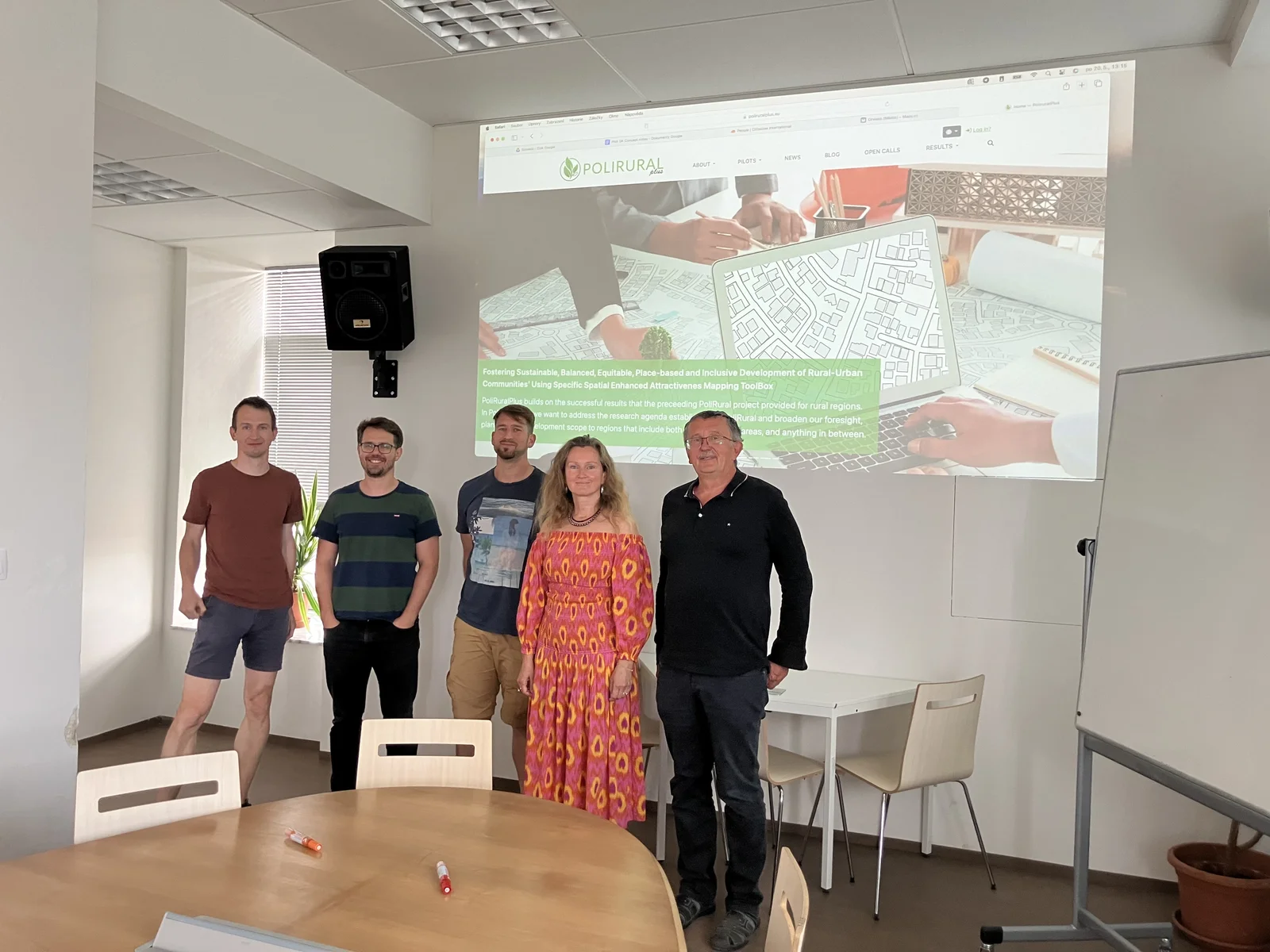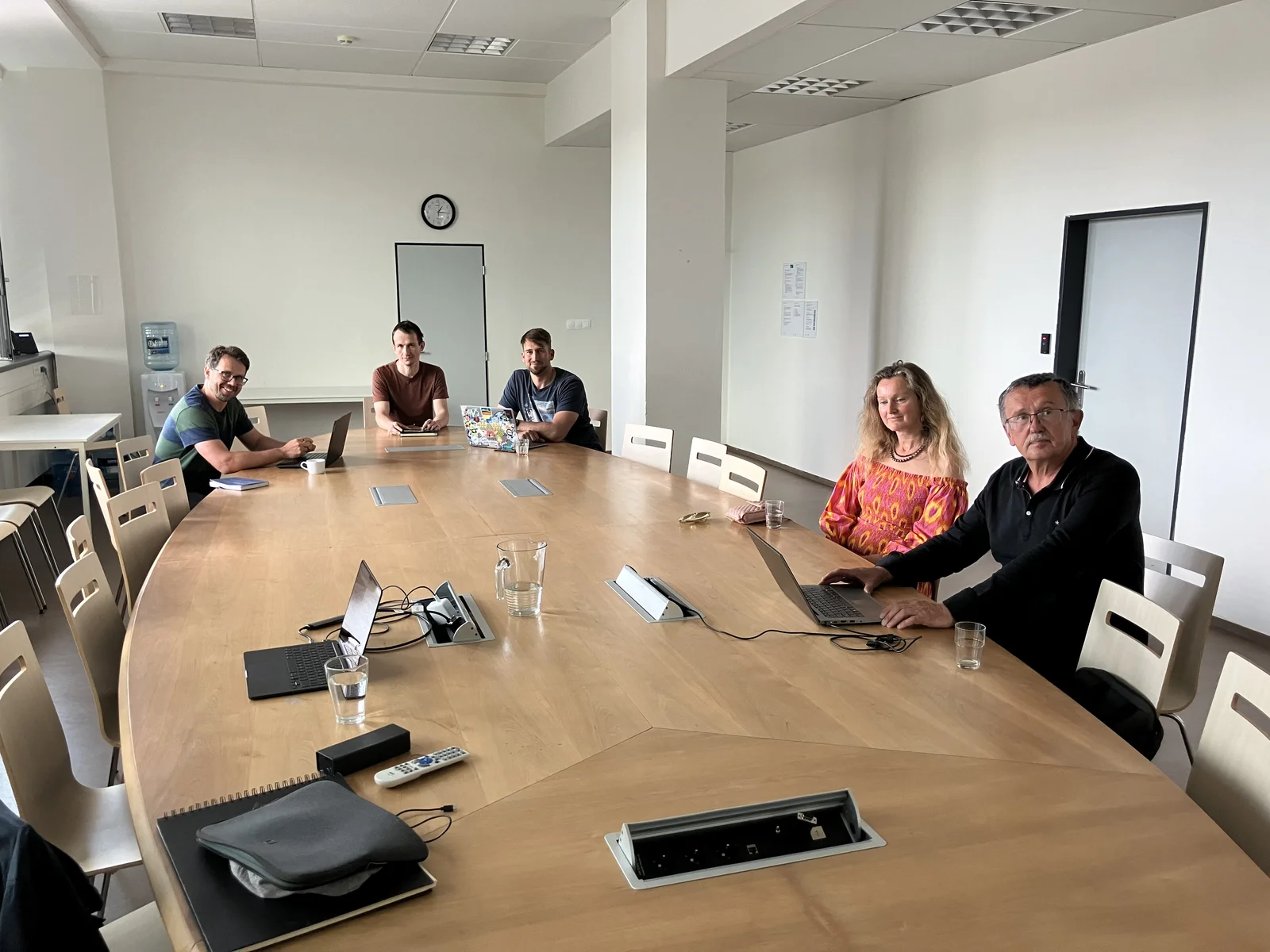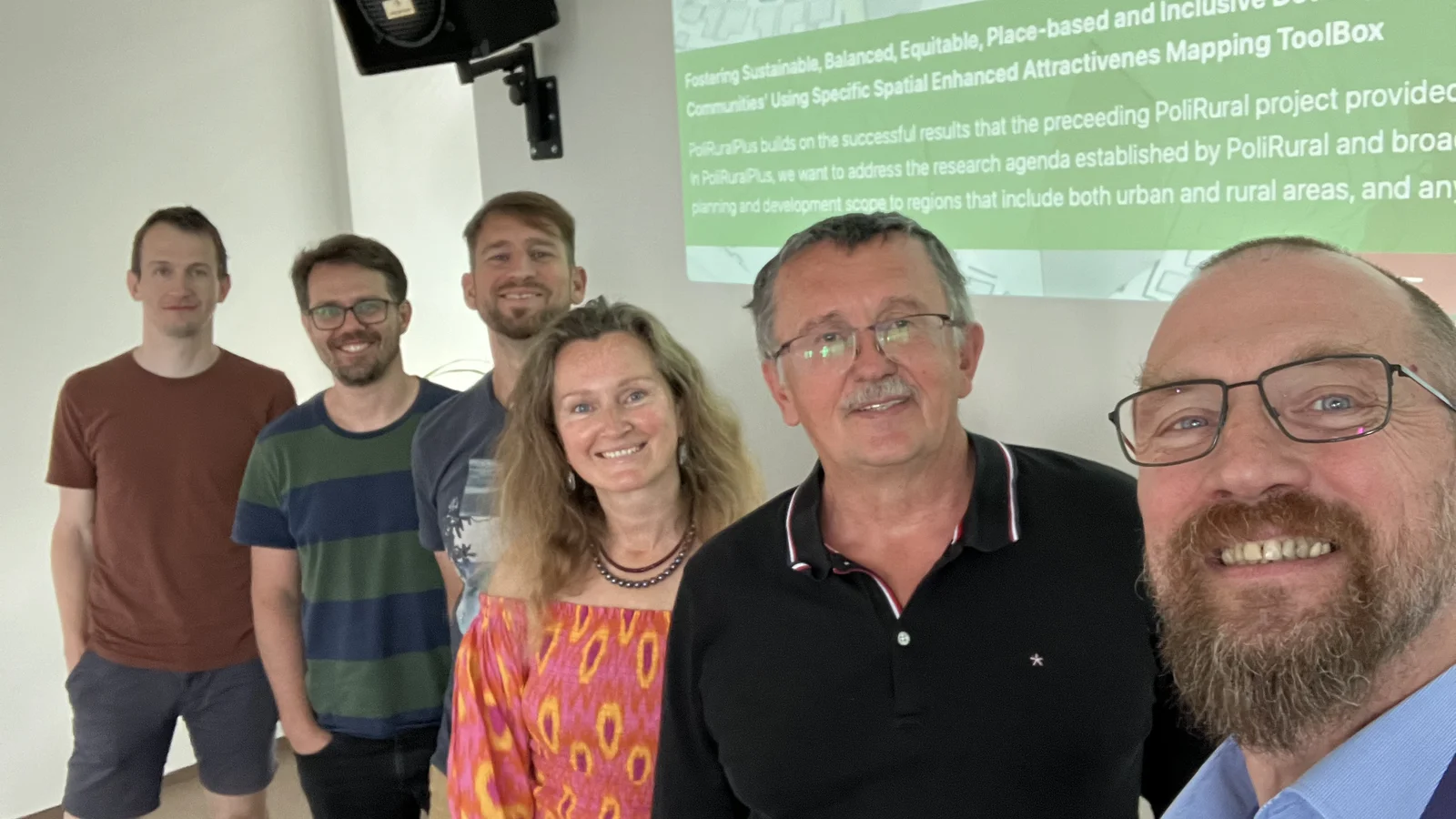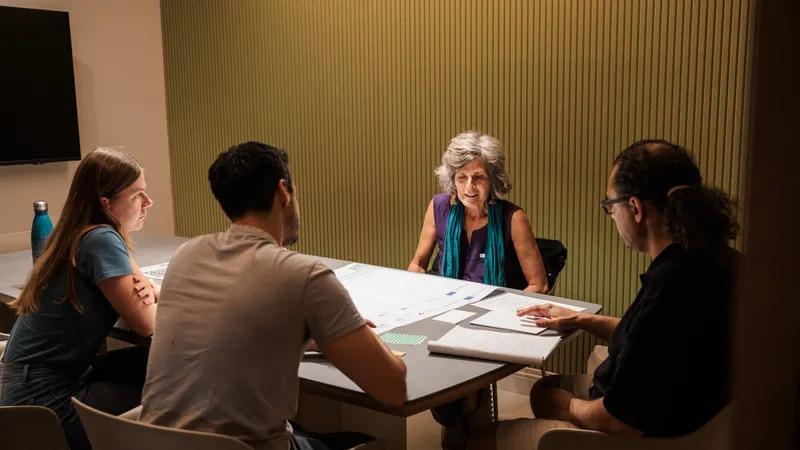On May 20th, a collaborative meeting was held in Prague at the Czech Technical University (CVUT) involving representatives from the Faculty of Information Technology (FIT CVUT: Petr Šimánek, Vojtěch Rybář, Miroslav Čepek, Alexander Kovalenko, Petra Ritschelová a David Pešek, CIIRC CVUT: Vít Dočkal), the Czech Centre for Science and Society (CCSS: Karel Charvát), the Slovak University of Agriculture in Nitra (SUA: Marieta Okenková) and Rural Parliament of Youth in Slovakia (SRY: Monika Slaninová).
The primary focus of the meeting was to discuss various strategic topics, including foresight methodologies and their practical applications.
The meeting commenced with a core question: how do we intend to conduct foresight activities? This set the stage for discussions on scenario planning, agent-based research, and systems dynamics. Additionally, the group explored previous PoliRural approaches to foresight, questioning how Runar Bergheim (Asplan Viak) identifying who could provide specific reference points.
A significant portion of the meeting was dedicated to determining what offerings could be made available to potential target groups, such as strategists at the Ministry of Agriculture and Rural Development in Slovakia and rural communities. Typical offerings discussed included consultancy, education, and the creation of demonstration farms, including the possibility of developing virtual farms. The participants also examined how they could contribute to the development of the Agricultural Knowledge and Innovation System (AKIS) in Slovakia.
Discussion on the linkage of Large Language Models (LLMs) with geospatial analysis was one of the important parts of the meeting.. This focused on how LLMs can be utilized to interpret and analyze large sets of geospatial data, enhancing the ability to predict land use changes, assess environmental impacts, and support decision-making in rural and urban planning. By integrating LLMs with geospatial technologies, the participants aimed to improve the accuracy and efficiency of spatial data analysis, ultimately contributing to more detailed and sustainable development strategies. In the initial phase, several requirements were identified, including relevant questions, evaluation of existing strategies based on specific localities, available data, and target groups. One of the specific initiatives discussed was the development of a conversational agent designed to improve rural areas by answering questions like "What can you try if you want to improve your village?" This agent would utilize inputs from strategic, tactical, and experiential documents. Another initiative focused on managing food waste, with a student project exploring strategies for reduction. Sentiment analysis for infrastructure projects was also a key topic, with discussions on whether to build power plants, incinerators, or dams based on local resident sentiment. Additionally, the group discussed land use prediction, using historical data to forecast future land use and understanding how village land use impacts urban life. Climate change projections and their impact on land use were also considered.
Important part of discussion was also expanding organic farming in alignment with EU goals. The main goal is to increase ecologically farmed land to 25% by 2030, which in Slovakia means expanding from less than 200,000 hectares to 370,000 hectares. The discussion addressed the increasing demands on farmers amidst declining incomes and strategies to enhance their prosperity. The meeting highlighted the influence of consumers and food pricing, emphasizing the mismatch between food prices and their actual value. The commitment to carbon neutrality by major multinational food companies like Unilever was discussed, focusing on historical benchmarks and regenerative agriculture practices aimed at decarbonizing activities. Sustainable farming practices, a subset of precision agriculture, were also covered, with an emphasis on reducing fertilizer use by 30% and minimising the use of fungicides, pesticides, and similar chemicals. We also discussed the potential partnership with Nitra through the VITINSPECTOR project, considering the collaboration on meteorological stations linked to the Ekovín association in Slovakia.
The meeting underscored the importance of interdisciplinary collaboration to address complex agricultural and rural development challenges, emphasizing the need for innovative strategies, sustainable practices, and effective utilization of data and technology.





Existing Comments